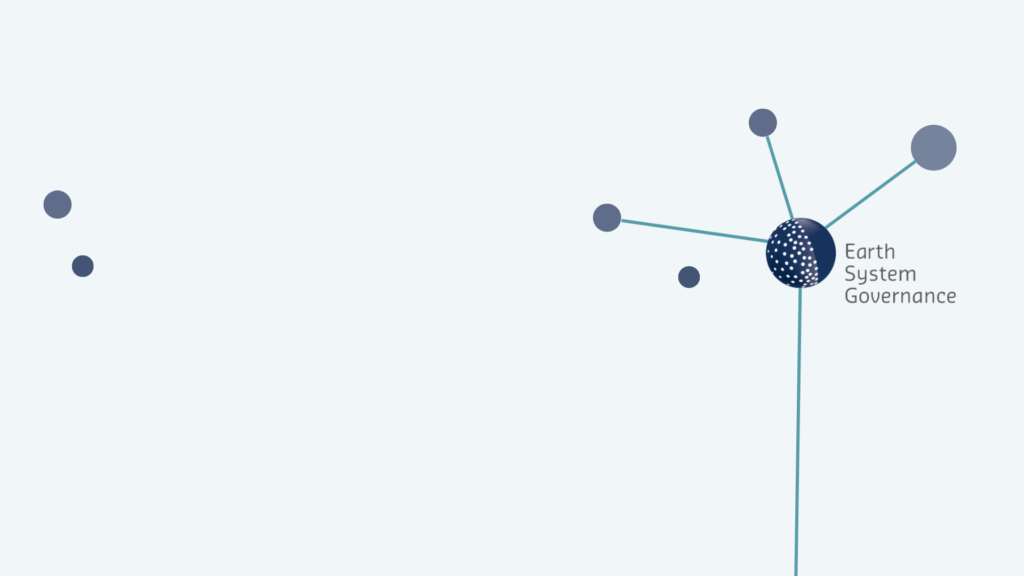The global biodiversity and climate crises require urgent transformations towards sustainability. Some are proposing the idea that autocracies are better suited to the task and doubting the ability of democracies to swiftly implement effective measures to address global environmental problems. In the webinar Democratising Sustainability Transformations, experts Jonathan Pickering (University of Canberra), Julia Tschersich (Utrecht University), Melani Gunathilaka (Climate Action Now Sri Lanka) and Rafael Jimenez Aybar (Westminster Foundation for Democracy) were asked:
Is there any empirical evidence to support this view, or do democracies have the potential to foster sustainability transformations?
The webinar, held on 20 September 2022, was co-hosted by the Centre for Deliberative Democracy and Global Governance at the University of Canberra and the Earth System Governance (ESG) Project.
The event was kicked off by Jonathan Pickering presenting a recent article on Democratising sustainability transformations, which was co-developed within the ESG Project’s Working Group on Democracy and recently published in the Earth System Governance journal. The paper analyses the transformative potential of democratic practices in environmental governance, based on an integrative review of empirical evidence from existing projects. It outlines three possible pathways for sustainability suggested in the literature (see figure below): a dual transformation towards ecological democracy, sustainability transformation through democratic incrementalism, and eco-authoritarian transformation.

Reviewing evidence across five dimensions of transformation – institutional, social, economic, epistemic, and technological – the authors find that there is considerable evidence that democratic practices are associated with stronger environmental sustainability. However, the strength of this relationship varies across issue areas and can depend on the depth and quality of democratic practices.
Democratic practices are associated with stronger environmental sustainability
Linking democracy to justice, Julia Tschersich argued that achieving sustainability transformations requires a deepened understanding of democracy based on three fundamental paradigm shifts. First, we must move from expert to pluralist understandings of knowledge to develop robust and adapted solutions and empower marginalised voices. Second, a shift from economic materialism to post-growth strategies is required, recognizing for instance post-capitalist futures from the Global South. Fair distribution, control, and access over resources determine chances for meaningful participation in decision-making and are hence fundamental from an ecological democracy perspective. Third, there is a need to move from anthropocentrism to reconnecting human-nature relationships. Embracing more-than-human democratic thinking could entail meaningful representation of non-humans in democratic processes or giving legal rights to nature.

Consequently, to tackle today’s crises, we need to reach beyond an understanding of democracy centred around nation-states and reconfigure participation and deliberation. An example of democratic participation is the People’s Struggle in Sri Lanka. Melani Gunathilaka (Co-founder of Climate Action Now Sri Lanka) shared her experience of the 124-day protest commencing in March 2022. Initially this decentralized, youth-led protest was characterised by people caring for one another, inclusivity, and religious and ethnic harmony, but later there were attacks on peaceful protesters by pro-government groups which caused fear and conflict to spread among them. Yet, within four months, the movement managed to gather support from across people around the island for its main goal: forcing the executive president to step down. While massive crowds occupied state buildings, the new president failed to receive a people’s mandate and dispersed them with brutal military attacks. In the aftermath of the protests, the participants split into several groups, one demanding a fresh election and another who wish to form people’s councils aimed at improving participatory governance. However, these People’s Councils face several challenges, including lack of understanding of the concept, accessibility, reluctance to take ownership in making decisions, communication between groups with conflicting ideologies, transparency, and state oppression.
Rafael Jimenez Aybar elaborated on the synergies between enhancing democracy and sound environmental stewardship: rigorous deliberative democracy interventions such as the meaningful inclusion of citizens in decision-making on the environment will not only help achieve environmental objectives but strengthen democracies overall. However, without decisive climate action, the democracy crisis will worsen. While media can contribute to the success of environmental protests, transparency about ownership and sponsorship of media outlets is central. Moreover, corruption and the influence of vested interests, or ‘policy capture’ must be addressed, and governments should invest more in sustainability awareness and education to further expand the political space in society needed to deliver the accelerating climate action that the UN Framework Convention on Climate Change requires of all Parties, the ‘ratchet mechanism’ of climate ambition built into the logic of the Paris Agreement, hinging on the regular submission of Nationally Determined Contributions (NDCs) and global stocktakes.
Ultimately the ability of democratic practices to foster sustainable transformations depends on power dynamics across political levels. Yet, as each speaker noted, commitment to a clear set of democratic values and support for practices built on these values is most needed in times of crises, particularly in times of environmental catastrophes and dislocations.
Further reading/listening:
- Deepening democracy for the governance toward just transitions in agri-food systems (Tschersich and Kok 2022)
- For more information about the People’s Struggle listen to the podcast interview with Melani Gunathilaka.
- Addressing the climate and environmental crises through better governance: The environmental democracy approach in development cooperation (Westminster Foundation for Democracy)
You can follow @ESG_Project; @ESG_Democracy; @DelDemUCan on Twitter.
Authors: Julia Feine, Melani Gunathilaka, Rafael Jimenez Aybar, Ayşem Mert, Jonathan Pickering, Julia Tschersich


